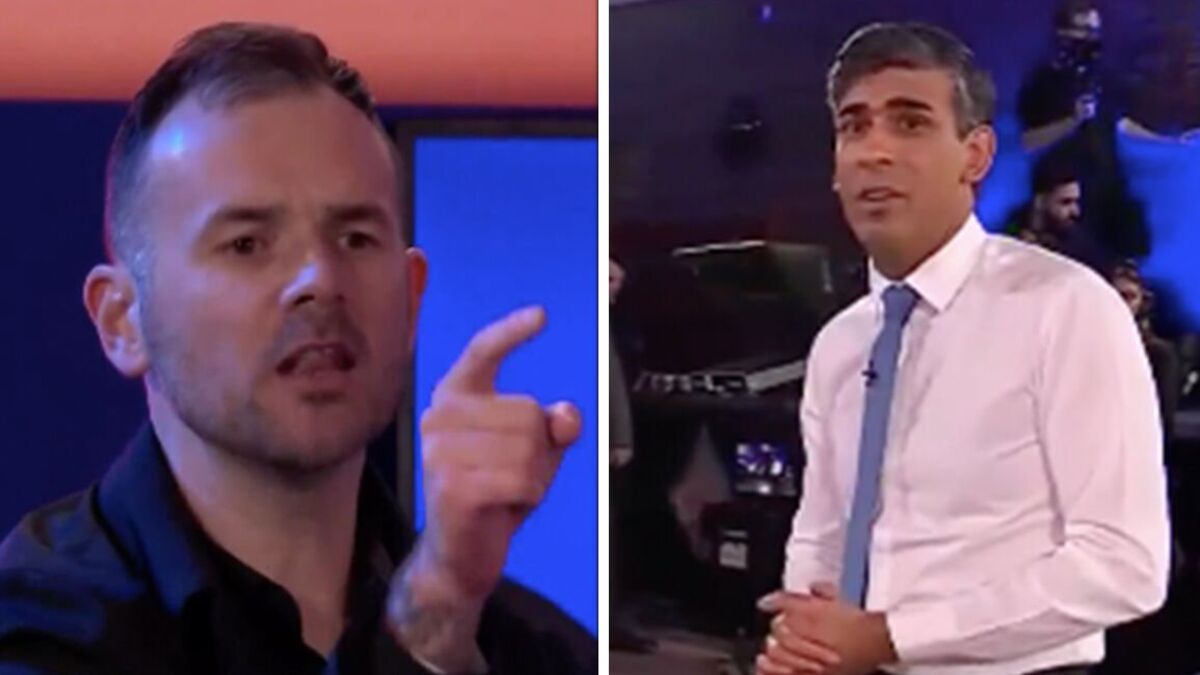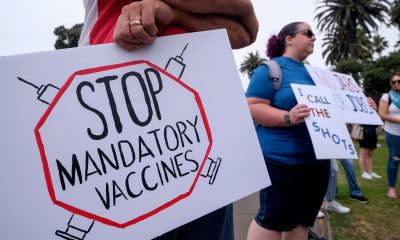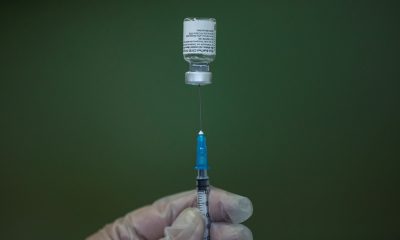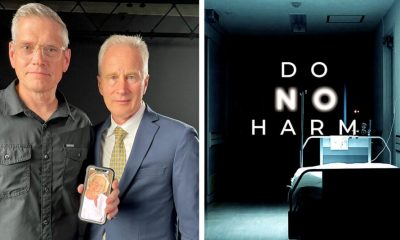John Watt, the Scottish man who confronted the British prime minister on live TV about the government leaving him and other COVID-19 vaccine-injured “to rot,” last week shared his story with internet lecturer John Campbell, Ph.D.
In February 2020, Watt, a 34-year-old professional carpenter and fitness junkie, developed a severe respiratory illness with cardiac symptoms, including chest pain and elevated troponin levels.
He was hospitalized and diagnosed with a heart attack despite having normal cardiograms.
“You’ve got an athlete’s heart,” the doctors told Watt, who assured him he would be fine. But they gave him a stent and put him on a cocktail of drugs, which only made him feel worse, he told Campbell.
Over the next several months, Watt suffered panic attacks, neurological issues and post-traumatic stress disorder-like symptoms.
He received minimal help from National Health Service (NHS) doctors. They sent him to a psychologist who diagnosed him with “health anxiety” related to his ongoing heart symptoms.
READ ALSO: Man injured by Pfizer COVID-19 vaccine wins ‘landmark’ claim against employer
“They kept telling me it was in my head,” he said, and “giving me all sorts of antidepressants.”
It was only much later, when consulting with other doctors, that Watt learned he likely had inflammation of the heart.
“I’m not a big fan of calling it COVID anymore, but that’s just me,” Watt said, adding that he believed the virus was man-made.
Doctors eventually told Watt he had functional neurological disorder, specifically persistent postural perceptual dizziness — a long-lasting condition of vertigo.
Watt told Campbell he eventually got better and managed to get back to the gym and play golf, even start a family business. “I wasn’t 100% but at least I was living life,” he said.
Watt detoured from his story to discuss with Campbell the COVID-19 hospital protocols that resulted in many deaths improperly attributed to the virus.
“We need to look back and work out why people died,” he said. “Relatives have a right to know that. We were told it was safe and effective, weren’t we?’
When the COVID-19 vaccines were rolled out in 2021, Watt recalled taking the first dose of the AstraZeneca vaccine in February, with no ill effects.
He took the second dose in June and immediately felt like he was going to pass out.
“I remember I had to go into a cafe and I genuinely thought I was going to die,” he told Campbell. “And I laid down in that cafe.” Watt thought he was experiencing a relapse of a previous illness.
The symptoms did not last, and life got mostly back to normal for Watt, except for ongoing blood pressure issues.
READ ALSO: How Pfizer, Moderna control COVID-19 vaccine narratives, influence health policy
In November of 2021, the recommendation to take the COVID-19 booster shot came along. “I was like, ‘No, I’m not doing it,’” he told Campbell. “I don’t believe in it.”
However, Watt’s resolve broke when he learned he would have to be up to date on vaccines to travel to South Africa for his yearly visit with family. South Africa had just announced a breakout of the Omicron variant.
Watt began vomiting every day and repeatedly sought emergency care. He couldn’t eat or sleep and lost a total of 25 kilograms (55 pounds).
“But do you know what my frustration lies, John?” he asked Campbell. “If they’d done that to me, how many others have they done it to? And how many have actually taken their own life because of it?”
Watt expressed the hope that people hearing his story will be able to make the connection to the vaccines and get the help they need.
Watts spent 14 months bedridden and over $50,000 “to try to get my life back” — and he still believed he was dying. That’s when he started reaching out to others.
“I started to try and speak out,” he said. He learned from others about “what you can say and cannot say [on social media].”
Watt found multiple stories similar to his own and advocacy groups for the vaccine-injured online. When he tried to share his story on Facebook, including a picture of himself in a wheelchair, he was censored. “[They] shut me down,” he said.
One prayer he made involved a promise to help others. If God would help him, “I will make as much noise about this as possible and I’ll try and help as many people as I possibly can,” he said.
Within a half hour of making that promise, Watt found a girl on Facebook who was suicidal, and he called her and helped her, he told Campbell.
Two days later, he received a call from another woman who said she saw his story and that “God is screaming to me to reach out to you” about a particular doctor, he said.

 Health5 days ago
Health5 days ago
 Entertainment7 days ago
Entertainment7 days ago
 Crime6 days ago
Crime6 days ago
 Education1 week ago
Education1 week ago
 Health1 week ago
Health1 week ago
 Comments and Issues6 days ago
Comments and Issues6 days ago
 Football7 days ago
Football7 days ago
 Latest6 days ago
Latest6 days ago











